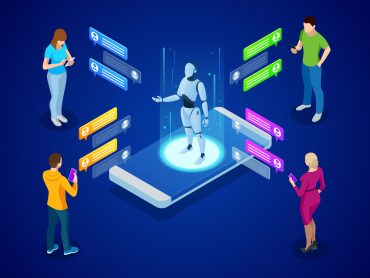
Harris Poll: Most business leaders expect to see generative AI boost productivity, as well as help deliver better customer experiences, within the next three years.
Generative AI, as seen through ChatGPT, Microsoft Bing AI, and Google Bard, has proven to be an interesting way to get answers to questions, churn out short narratives, provide research, and generate code. But solid business applications still have been pending due to concerns about data inaccuracies and “hallucinations” that arise out of the results .
But there is great hope in the potential of this highly democratized form of AI. Within the next three years, most business leaders expect to see generative AI boost productivity, as well as help deliver better customer experiences, a survey by Harris Poll finds. At the same time, there is mounting concern over its security implications and potential job losses, the study of 1,000 managers, sponsored by Insight Enterprises, finds.
Close to three-quarters, 72%, anticipate generative AI will help make employees more productive, as well as enhance customer service (66%), assist with research and development (53%) and speed up software development/testing (50%).
See also: Responsible Generative AI Consortium Established
The study’s authors point to the following ways generative AI will boost job roles:
Data scientist or machine learning engineers: Generative AI will enable these professionals to “create preliminary dataset visualizations or summaries.” In addition, there will be improved opportunities to “detect anomalies, impute missing data, use historical data to develop predictive analytics,’ and to develop decision modeling.
Software developers: Generative AI is already enabling developers to auto-complete code, refactor code, debug code, and even automatically produce documentation. In addition, AI will “provide inspiration for UI design.”
Financial operations: For starters, the technology may help financial pros analyze
financial data and extract insights. It will also step up fraud detection, and model risk assessment. Generative AI also serves as a tool to help “develop predictive analytics to forecast revenue, cash
flow, and ROI.” It will play a role in compliance. Lastly, the report’s author promise, it will automate data entry.
Communications: Generative AI will assist marketing and communications professionals by helping to “summarize third-party content and research,” as well as generate rough drafts of documents, and even images to go along. It can even play a role in proofreading and copyediting.
See also: Researchers Amplify Impact of Generative AI in Auto Design
There are hurdles to overcome as well before all this can play out. While there is a lot of potential to transform business processes, many leaders are worried about new vulnerabilities and threats posed by generative AI. To meet these challenges, 81% of organizations are developing or have developed generative AI policies.




























